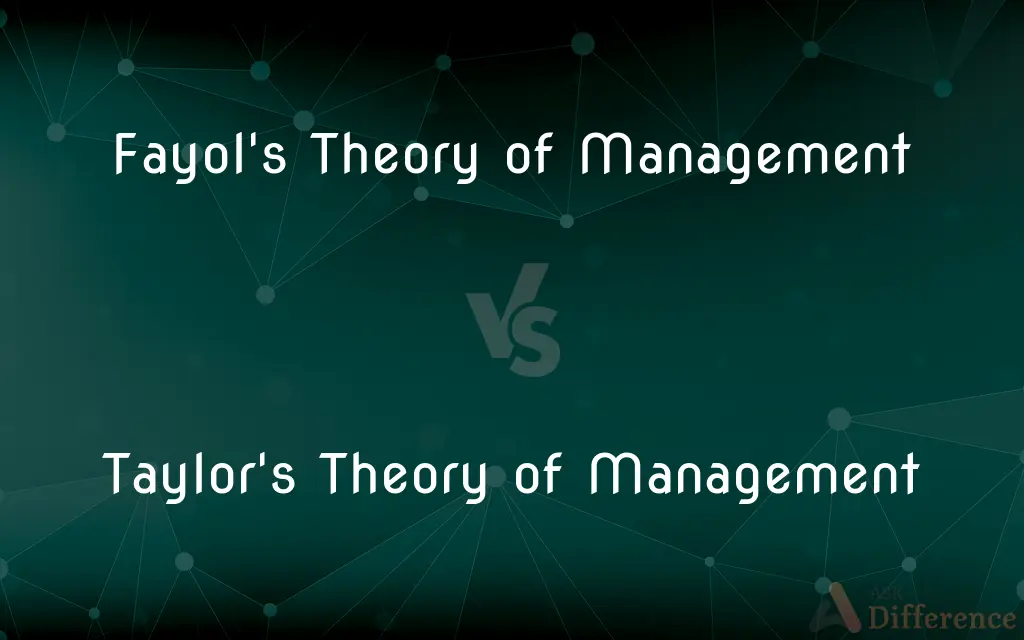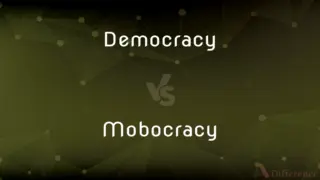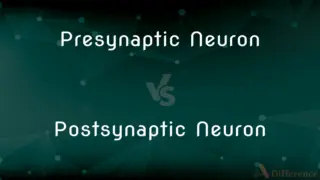Fayol's Theory of Management vs. Taylor's Theory of Management — What's the Difference?
Edited by Tayyaba Rehman — By Fiza Rafique — Published on June 18, 2024
Fayol's theory focuses on administrative principles and top-down management, whereas Taylor's emphasizes scientific management and efficiency at the operational level.

Difference Between Fayol's Theory of Management and Taylor's Theory of Management
Table of Contents
ADVERTISEMENT
Key Differences
Henri Fayol's Theory of Management centers on administrative principles, highlighting a top-down approach to management with emphasis on unity of command, division of work, and authority. On the other hand, Frederick W. Taylor's Theory of Management, known as Scientific Management, focuses on increasing efficiency through the scientific study of work methods, worker training, and incentive schemes.
Fayol proposed that good management practices are universal and applicable to all organizational levels. He introduced key principles such as planning, organizing, leading, and controlling (POLC framework), suggesting that these functions are integral to effective management. Conversely, Taylor's theory is rooted in the belief that labor productivity can be increased by standardizing tasks and using time and motion studies to optimize work methods. He advocated for a scientific selection of workers and the development of a cooperative relationship between management and labor.
While Fayol's approach is more holistic and focuses on the roles and duties of managers, Taylor's is centered on the tasks performed by workers. Fayol's theory is often applied to the strategic level of management, providing a broad framework for organizational management and leadership. In contrast, Taylor's principles are applied at the operational level, with a focus on improving productivity and operational efficiency through work study, task optimization, and incentive schemes.
Both theories have significantly influenced modern management practices, but they differ in their focus and application. Fayol's theory provides a foundation for understanding the administrative aspects of management and the role of managers in planning, organizing, leading, and controlling. Taylor's theory, however, delves into the specifics of work process optimization, emphasizing the importance of scientific methods in enhancing efficiency and productivity at the worker level.
Fayol's management theory offers a top-down perspective on organizational management, focusing on administrative principles and the universal roles of managers. Taylor's scientific management theory provides a bottom-up approach, concentrating on the efficiency and optimization of work processes through scientific study and worker-management cooperation.
ADVERTISEMENT
Comparison Chart
Focus
Administrative principles, top-down management
Scientific management, efficiency at the operational level
Key Concepts
Unity of command, division of work, authority
Scientific study of work, optimization of work processes
Approach to Management
Holistic, focusing on managerial practices
Task-oriented, focusing on work methods and efficiency
Application Level
Strategic and organizational management
Operational efficiency and productivity
Key Contributions
POLC framework (Planning, Organizing, Leading, Controlling)
Time and motion studies, scientific selection of workers
Compare with Definitions
Fayol's Theory of Management
Focuses on managerial practices and a universal set of management principles.
Division of labor to increase efficiency.
Taylor's Theory of Management
Advocates for the scientific selection and training of workers.
Hiring workers based on their abilities and providing specific training.
Fayol's Theory of Management
Stresses the importance of coordination and control.
Regularly monitoring performance against goals.
Taylor's Theory of Management
Emphasizes incentive schemes to motivate workers.
Implementing a piece-rate pay system for factory workers.
Fayol's Theory of Management
Advocates for planning, organizing, leading, and controlling (POLC) as key management functions.
Creating strategic plans and setting organizational objectives.
Taylor's Theory of Management
Focuses on cooperation between management and workers to ensure that work is done in the most efficient way.
Encouraging open communication and collaboration to improve processes.
Fayol's Theory of Management
Emphasizes administrative principles and top-down management approach.
Implementing a centralized decision-making process.
Taylor's Theory of Management
Centers on scientific management and enhancing operational efficiency.
Analyzing work tasks to optimize productivity.
Fayol's Theory of Management
Suggests unity of command and authority within the organization.
Each employee reports to only one manager.
Taylor's Theory of Management
Proposes the scientific study of work methods to increase labor productivity.
Using time studies to determine the best way to perform tasks.
Common Curiosities
How does Taylor's Theory of Management differ from Fayol's?
Taylor's theory centers on scientific management and operational efficiency, emphasizing the optimization of work processes and worker productivity.
What is the significance of Taylor's scientific management?
Taylor's scientific management is significant for its emphasis on task optimization, scientific study of work methods, and improving productivity through worker-management cooperation.
What is the main focus of Fayol's Theory of Management?
Fayol's theory focuses on administrative principles and the universal roles of managers in planning, organizing, leading, and controlling.
Which theory is more focused on worker productivity?
Taylor's theory is more focused on worker productivity through the scientific optimization of work processes.
Can Fayol's and Taylor's theories be applied together?
Yes, combining Fayol's administrative principles with Taylor's focus on efficiency can provide a comprehensive management strategy.
What are the key principles in Fayol's management theory?
Key principles include unity of command, division of work, authority, and the POLC framework.
What operational improvements does Taylor's theory suggest?
Taylor suggests improvements like standardizing tasks, conducting time and motion studies, and implementing incentive schemes to enhance efficiency.
How does Fayol's theory address organizational structure?
Fayol addresses organizational structure through principles like unity of command and division of labor, advocating for clear hierarchical structures and responsibilities.
How does Fayol's theory apply to strategic management?
Fayol's theory applies to strategic management by providing a framework for planning, organizing, leading, and controlling at the organizational level.
What role does scientific study play in Taylor's theory?
Scientific study plays a crucial role in Taylor's theory, used to analyze and optimize work tasks for increased efficiency and productivity.
Share Your Discovery

Previous Comparison
Democracy vs. Mobocracy
Next Comparison
Presynaptic Neuron vs. Postsynaptic NeuronAuthor Spotlight
Written by
Fiza RafiqueFiza Rafique is a skilled content writer at AskDifference.com, where she meticulously refines and enhances written pieces. Drawing from her vast editorial expertise, Fiza ensures clarity, accuracy, and precision in every article. Passionate about language, she continually seeks to elevate the quality of content for readers worldwide.
Edited by
Tayyaba RehmanTayyaba Rehman is a distinguished writer, currently serving as a primary contributor to askdifference.com. As a researcher in semantics and etymology, Tayyaba's passion for the complexity of languages and their distinctions has found a perfect home on the platform. Tayyaba delves into the intricacies of language, distinguishing between commonly confused words and phrases, thereby providing clarity for readers worldwide.













































